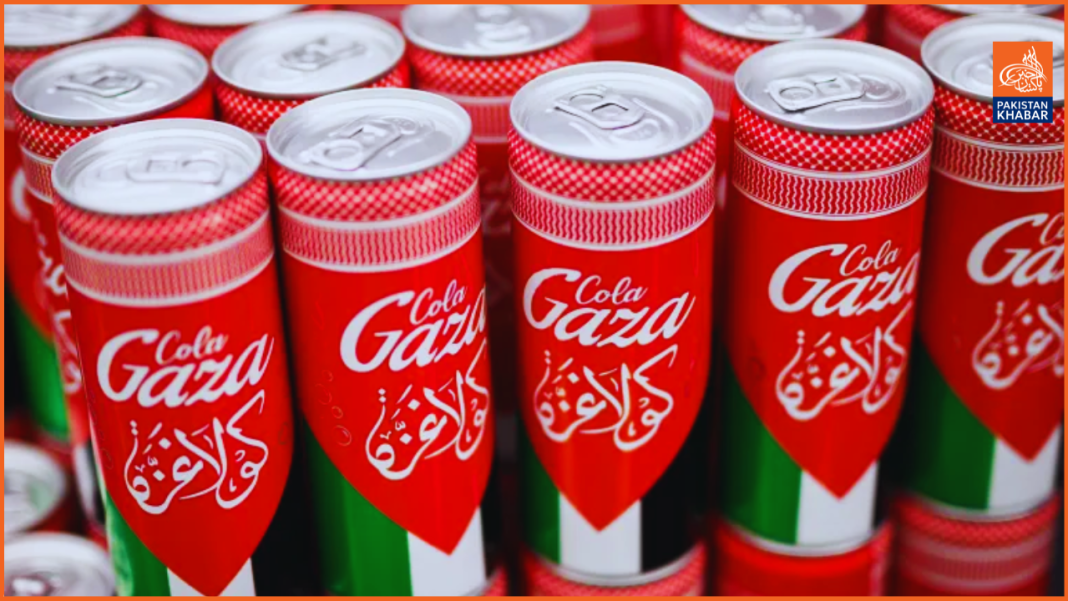As supporters of Palestine continue to boycott brands linked to Israeli aggression in Gaza, a London-based entrepreneur has introduced an alternative to Coca-Cola—Gaza Cola.
Osama Qashoo, founder of Hiba Express, a fast-food chain specializing in Middle Eastern cuisine, created Gaza Cola in November 2023. He explained to Al Jazeera that the drink, which uses typical cola ingredients and has a sweet and acidic flavor similar to Coca-Cola, is distinct from Coca-Cola’s formula.
Qashoo announced that all profits from Gaza Cola would be donated to the reconstruction of the maternity ward at al-Karama Hospital, located northwest of Gaza City. Initially, the drink was available at Hiba Express and other local Palestinian eateries, and it is also sold by Muslim retailers like Manchester-based Al Aqsa, which recently ran out of stock. By early August, 500,000 cans of Gaza Cola had been sold, according to Al Jazeera.
Qashoo stated, “These companies that fuel this genocide, when you hit them in the most important place, which is the revenue stream, it definitely makes a lot of difference and makes them think.” He believes Gaza Cola will “build a boycott movement” that will financially impact Coca-Cola.
Qashoo’s personal connection to Palestine has played a role in his initiative. He shared that his adopted 17-year-old son, who was shot in the head in June, is missing in the West Bank, and that his family in Gaza has suffered immensely. “I have family in Gaza who have been decimated,” he said. “I’ve got friends — I don’t know where they are.”
Boycotts of Coca-Cola intensified after October 7, 2023, due to the company’s operations in the Israeli Atarot industrial settlement in occupied East Jerusalem. Many consumers cite U.S. support for Israel over the years, including in its ongoing conflict with Hamas, as a reason for the boycott.
Both Coca-Cola and PepsiCo are also facing boycotts in Pakistan, where consumers are turning to local brands. Restaurants, private school associations in Karachi, and university students have joined anti-Coca-Cola actions, diminishing the brand’s reputation despite its sponsorship of Coke Studio.
The soda giants have long faced pressure in the Muslim world. After Coca-Cola opened a factory in Israel in the 1960s, it was targeted by an Arab League boycott, which benefited Pepsi in the Middle East for decades. Despite Coca-Cola’s efforts, Pepsi still maintains a higher market share in Egypt and Pakistan, according to market research firm GlobalData. Similarly, PepsiCo faced boycotts after acquiring SodaStream, an Israeli company, in 2018.




